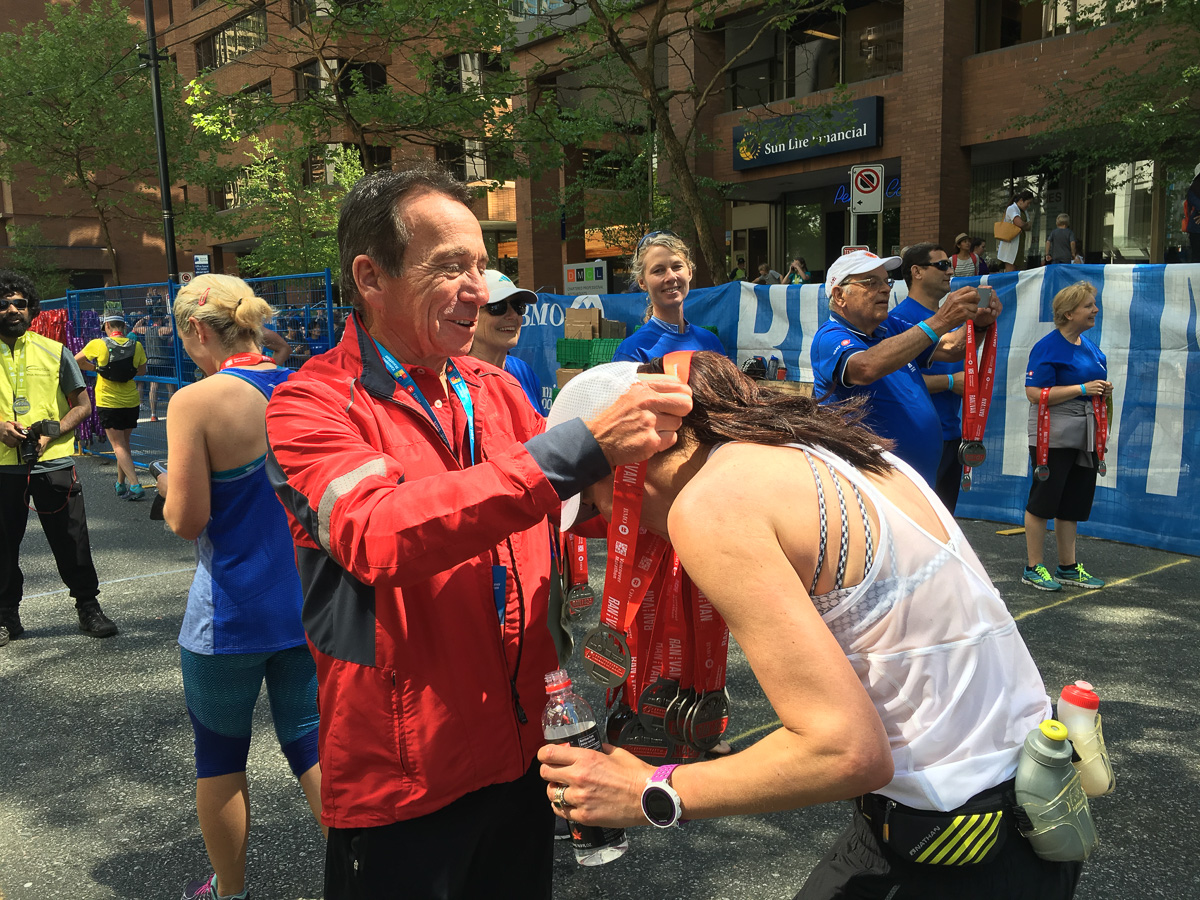Post-marathon recovery: How to recharge following a marathon
By celebrating your past success and planning for future ones, the post-marathon period is an excellent time to relax and recharge both your body and your mind.


You trained meticulously for months logging long runs, speed sessions and easy days. Then came race day and you gave it your all in covering those 42.2K.
Whether you smashed your old PB, finished for the first time or struggled semi-consciously after ‘hitting the wall,‘ what you do next in the days, weeks and months post-marathon has an important impact on how well and how quickly you recover and how soon you’ll bounce back.
RELATED: Schedule a post-race recovery phase between training seasons
The most important things to do following the marathon training cycle are:
- Take some much deserved time to rest, recover and recuperate, both mentally and physically.
- Prevent injury and maintain hard-earned fitness by slowly and gradually building back up.
- Set new goals for the upcoming season or training cycle.
Rest and recover now
The first is absolutely essential. You need time to recover from the tremendous toll that running 42.2K takes on your body. Rather than to prescribe a set number of days or weeks, the best suggestion is perhaps to listen to your body and not attempt to run again until you are completely pain-free and feeling back to normal. Note that there is almost always microscopic damage to the muscles and joints that can last for weeks after the marathon.
Take some time to enjoy other forms of activity such as walking, cycling or swimming. Getting the blood flowing will help speed recovery but should not stress the already ailing body. Attempt short and easy runs only when you feel you’ve recovered sufficiently and even then, incorporate extra recovery between and before adding more mileage.
Stay healthy and injury-free
In the days and weeks post-race, the body is also most vulnerable to injury and illness, again due to accumulated damage and stress to various body systems. It’s important not to overdo anything and build back ever so slowly by adding distance and intensity only gradually and in short segments. Research shows that fitness levels do not deteriorate significantly until almost two weeks of substantially decreased activity and even then, only marginally so. Do not fear losing fitness and remember it is much easier to maintain it than it is to attain it in the first place.
It used to be accepted wisdom that your immune system was compromised, explaining why many runners catch colds, the flu or mild respiratory infections after a big race, but recent research refutes this theory. It’s still a good plan to stay well hydrated, eat a healthy diet and get as much sleep as you can. This will go a long way to keeping you healthy and fit.
Your mood may also take a small hit following the race and the ‘post-marathon blues’ may set in resulting in a mild depression. This is likely an emotional response to the completion of months and perhaps years of preparation, training and nervous excitement towards a difficult, demanding and yet immensely rewarding task. Take some time to review the training leading up to and the recent race itself. Celebrate your successes and begin to consider your goals and ambitions for the next one.
Set new goals
Setting new goals and building on the strengths and weaknesses of past training is a great way to kick-start your next season or cycle. I’d suggest deciding on a ‘big’ and longer-term goal—be it to run another marathon or do one in a new and exciting location. Setting ‘smaller’ and more short-term goals such as tune-up races or fun relay events can help put the big goal in perspective and provide the momentum to continue working towards it. Develop or modify a training plan to meet your goals and enlist peers and training partners to help support you.
There is no perfect way to recover from a marathon and we all respond in different ways and take more or less time to fully recover. More rest and recovery is better than less, and a recurring theme is to listen to the body and back off until it says it’s ready to go. By celebrating our past success and planning for future ones, the post-marathon recovery period is an excellent time to relax and recharge both our bodies and our minds.


